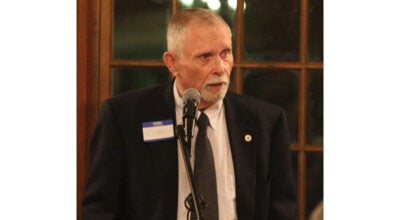What do you really want?
Published 12:11 pm Saturday, January 14, 2017
by Andrew Book
I am willing to guess that most of us don’t spend much time thinking about Hindu philosophy. Hinduism is a world away from most of us and, when Hinduism pops up on our radar, it is usually simply a blip about something going on in India rather than something that can inform our lives. As someone who has spent time living in India, I have seen much more of Hinduism than most Americans, yet still I have rarely considered what I might learn from Hinduism. However, over the past few weeks I have had to think more deeply about this faith than usual as I prepared to teach Hinduism in my world religions class.
I am deeply committed to following Jesus Christ. As I pursue my commitment to Jesus, I have also recognized that other faiths have made observations about human nature and life that can help me see the world more clearly. So, when I study other faiths, I do so with an openness to learning from them. As I have delved into Hinduism, I have found some ways that Hindu philosophy may actually help us follow Jesus.
Hinduism believes that each person begins by wanting pleasure. This doesn’t sound too complicated, but Hinduism goes on to say something more profound: you cannot move on to desiring deeper, more spiritual things (like God) until the pleasures of life have lost their appeal to you. As long as what you really want are the pleasures of this life, you will be focused on pursuing pleasure.
The second step is the pursuit of success, and Hinduism doesn’t believe you can seek God until the idea of success has lost its appeal!
The third step is focused on contributing to society, and as long as that fulfills you, you still will not be ready to seek God.
Hinduism claims that it is only after we have tried pleasure, success and even community service and found them all ultimately unsatisfying that we will really be ready to seek God (see Huston Smith’s book, “The World’s Religions”).
Hinduism’s teaching reminds me of the thoughts of the Old Testament’s wisest teacher, Solomon. In the book of Ecclesiastes, Solomon shares about how he began by pursuing pleasure — until he found it “meaningless.” Success was next for him as well — and he also found it meaningless. Ultimately, the book ends with this declaration: “That’s the whole story. Here now is my final conclusion: Fear God and obey his commands, for this is everyone’s duty. God will judge us for everything we do, including every secret thing, whether good or bad” (12:13-14).
Scripture is filled with calls to seek after God, but my experience as a pastor is that many of us simply do not want God enough to seek after God! We want pleasure, we want success, we want power, we want recognition, we want money, we want vacations, and we want many other things, but very few of us really want God. My hope is that we can learn from Solomon, someone who “had it all,” that once we get it (whatever “it” is for us), it will prove to be empty.
God is the only one who is ultimately fulfilling. I truly believe that each of us will only find our hearts content when we find our home in Christ.
I can’t talk you into wanting to pursue God, but I hope I can talk you into sitting down and asking yourself, “What do I really want?” Search your heart and try to identify your deep desires. I wouldn’t go as far as Hinduism does in saying that you should pursue every one of those desires until it proves to be empty. Instead, I hope you will ask yourself, “Would this really fulfill and satisfy me?”
Bring your desires to God honestly in prayer (God already knows them anyway) and invite God to reshape and remold them.
Living as a Christian is something that happens both in our hearts and in our actions. We can control our actions, but our hearts are more tricky. We don’t simply get to decide what our heart will feel one day to the next, but we can nurture different loves in our heart by choosing how we act. We need to do this in similar ways with our spouses and with God — we need to spend quality time together. So, think about times and places that have most connected you with God. Make getting yourself to those places a priority (and recognize that you may have to give up something to seek God!). As you truly seek God, your heart will follow!
We are starting a new series at Courtland United Methodist Church this Sunday at 11 a.m. titled “Pursuit!” which is focused on how to seek God. We would love to have you join us as we chase after God. Even more, I want you to put yourself in places where you can nurture a love and passion for God, so make time to put yourself in those places this week and see what God will do in you!
ANDREW BOOK is the pastor of Courtland United Methodist Church. He can be contacted at 653-2240 or andrew@courtlandumcva.org.





